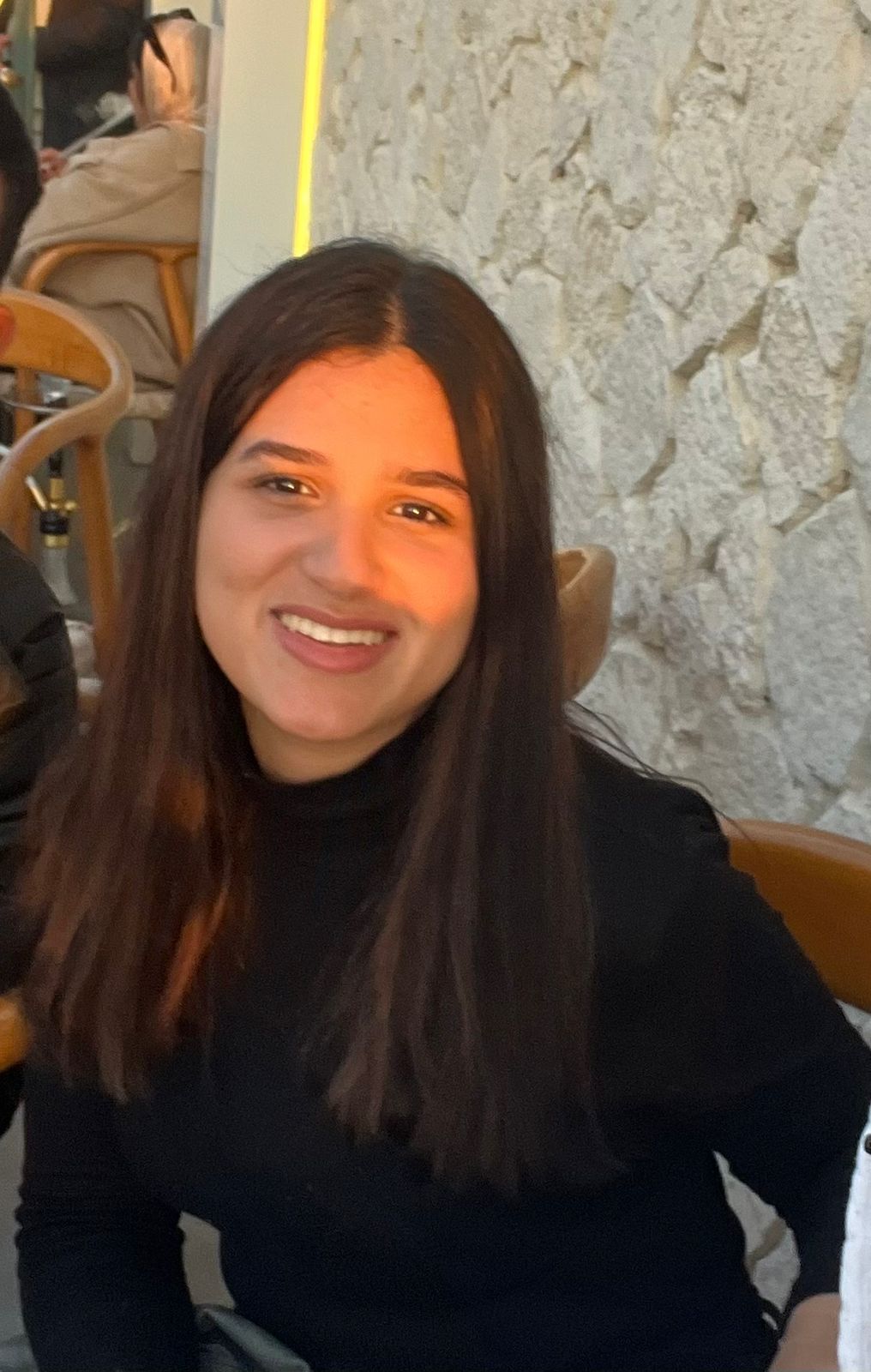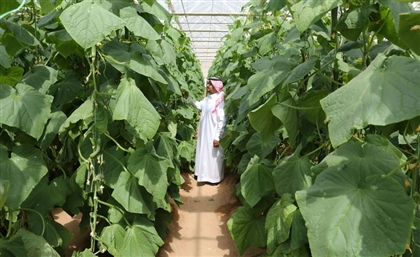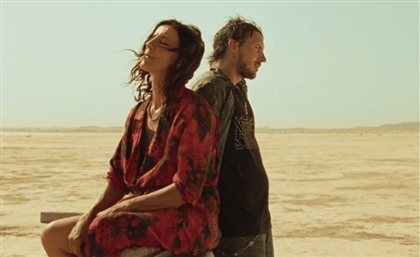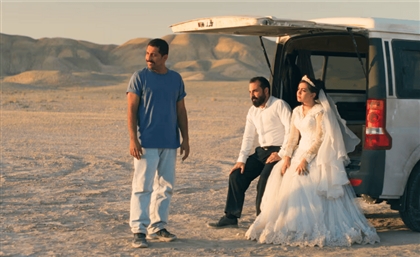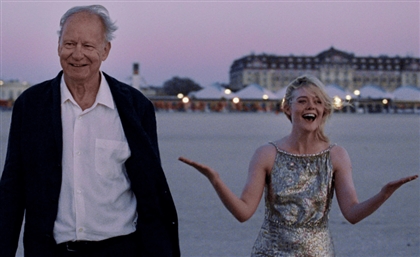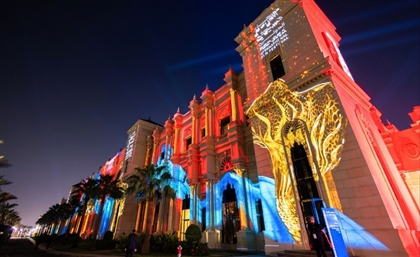Sard Visuals Uses AI to Push Photography Into a New Dimension
Through Sard Visuals, artist Muji uses AI as a tool to stretch photography into layered explorations of memory, authorship and identity.
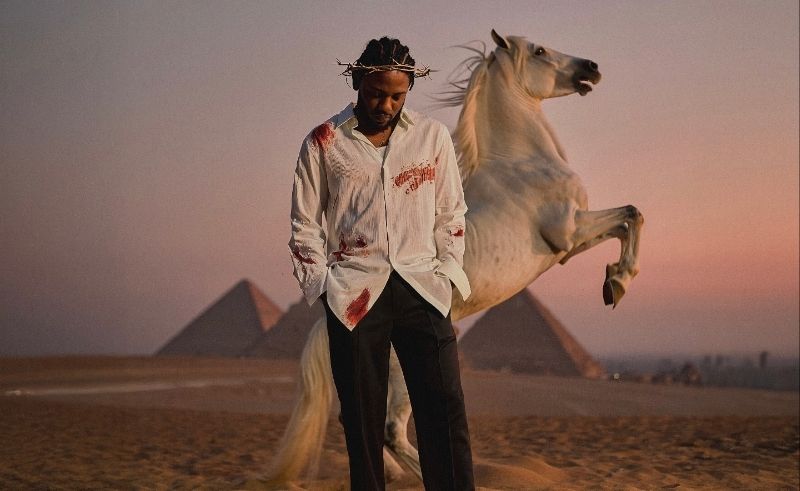
We are, all of us, living in an image.
Generated, curated, sometimes manipulated. A visual culture trained on filters and algorithms, on the soft glow of simulated perfection and the ambient churn of content. Artificial intelligence, once a futuristic abstraction, now reshapes how we see the world. It edits our portraits, captions our thoughts, completes our sentences. And increasingly, it crafts the very visuals we’re drawn to - effortlessly, endlessly, often invisibly.
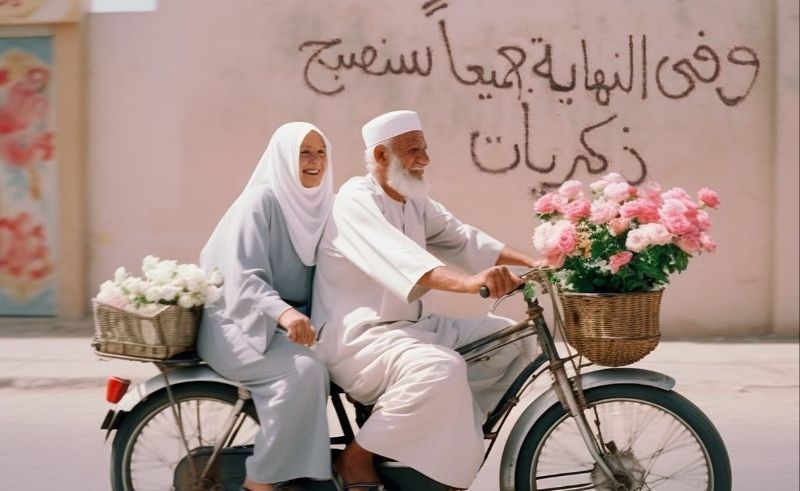
Is it theft or a tool? Obsolescence or liberation?
The debate rages, often abstract, divorced from the hands and hearts actually wielding these new brushes. The artist stands at a curious threshold. Faced with a tool so powerful it can dream for you, imagine faster than you can feel, and produce more than you could ever refine - what do you hold onto? What becomes authorship when the hands don’t touch the frame? And what, if anything, remains human?
 Amidst the noise, a different kind of creation emerges from the heart of Oman; Sard Visuals. Mujahid Almalki, aka Muji, isn’t interested in answering those questions cleanly. His project isn’t an argument for or against AI. Sard Visuals is a practice that sits within the tension of making meaning with a tool that doesn’t understand it, of preserving a sense of authorship inside a medium built on probability. His images are arresting. Arab, but not folkloric. Surreal, but never detached. They carry a strange familiarity, like memories you’re unsure you lived.
Amidst the noise, a different kind of creation emerges from the heart of Oman; Sard Visuals. Mujahid Almalki, aka Muji, isn’t interested in answering those questions cleanly. His project isn’t an argument for or against AI. Sard Visuals is a practice that sits within the tension of making meaning with a tool that doesn’t understand it, of preserving a sense of authorship inside a medium built on probability. His images are arresting. Arab, but not folkloric. Surreal, but never detached. They carry a strange familiarity, like memories you’re unsure you lived.
Muji describes himself as a chronic observer absorbing auras, connecting dots in the atmosphere around him. “I’m a father, a curious soul, and someone deeply rooted in both my culture and my contradictions,” Almaki says, describing his life outside the frame. That instinct lives in Sard Visuals. But where most photography is limited by time, space and the presence of a willing subject, Sard is unshackled. Muji begins with a photograph - often his own - then layers and expands it with AI. The result is a body of work that blends the documentary with the speculative, sincerity with satire. “Sard might be visual storytelling,” he says, “but it’s also a reflection of how I see the world.”
The path to Sard was paved with frustration. As a photographer seeking expressive freedom within the Arab world, Muji repeatedly encountered walls - logistical, financial, societal. He recalls hours spent in the desert, chasing perfect light, only to abandon the shot. The right model, the essential prop, remained elusive. “That frustration, paired with the desire to tell stories that weren’t being shown, pushed me to find a new way. That’s where AI entered - not to replace my vision, but to unlock it.” AI became the key to a studio previously constrained by reality.
 His vision, however, was forged long before algorithms. It crystallised in an early, potent photograph he took: a friend, preternaturally calm, reading a newspaper engulfed in flames. “That image struck me,” Muji recalls, “because it captured something I had felt for a long time: how the media can flood us with negativity to the point where it becomes normalised. We’re consuming chaos daily, sometimes without even flinching.” It was visceral emotional commentary, a seed planted for the storytelling he would later cultivate with Sard - stories demanding feeling.
His vision, however, was forged long before algorithms. It crystallised in an early, potent photograph he took: a friend, preternaturally calm, reading a newspaper engulfed in flames. “That image struck me,” Muji recalls, “because it captured something I had felt for a long time: how the media can flood us with negativity to the point where it becomes normalised. We’re consuming chaos daily, sometimes without even flinching.” It was visceral emotional commentary, a seed planted for the storytelling he would later cultivate with Sard - stories demanding feeling.
When Muji first fused his photography with AI, the core mission was reclamation. “I wanted to reimagine the Arab world the way I experienced it - not how the media portrayed it. I was tired of seeing us in monochrome. I wanted colour, irony, softness, strength.” Sard became his vessel for showing a modern Arab identity pulsating with complexity and playfulness, consciously pushing back against reductive stereotypes. “That we are only traditional. That we don’t laugh. That Arab women are silent. That our landscapes are either war zones or untouched deserts.” His images celebrate diversity, experimentation, absurdity and an innate sense of style often overlooked.
The process itself is a dynamic, sometimes fraught, collaboration. He begins with his own photography - a texture, a pose, a landscape he’s captured. Then enters the AI. “It’s a bit like arguing with a very stubborn but fascinating assistant,” he admits. “Emotionally, it’s rewarding and maddening. You think you’re being clear, and the AI gives you something off - but then in that mistake, you find a new direction.” It’s rarely an equal partnership, but the friction often sparks unexpected brilliance. Surprise, he notes, is a frequent companion.
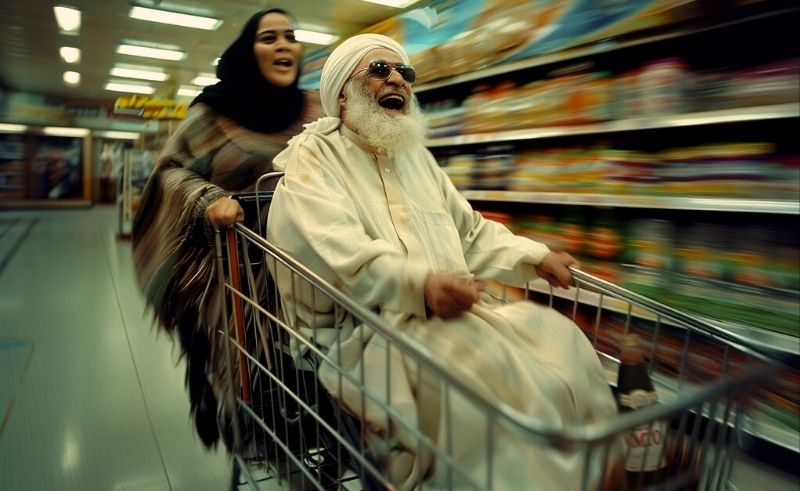 Concepts often ignite from a simple spark: a sentence, an emotion, a provocative 'What if?' "What if a veiled woman drifted a convertible through Muscat streets? What if men in dishdashas lined up at a fashion casting?" From these seeds, scenes are built. Sometimes, however, the visual emerges first, and meaning, as Muji puts it, “finds its way in later like a guest who wasn’t invited but fits the vibe.” The blend of humour, surrealism and cultural commentary feels organic.
Concepts often ignite from a simple spark: a sentence, an emotion, a provocative 'What if?' "What if a veiled woman drifted a convertible through Muscat streets? What if men in dishdashas lined up at a fashion casting?" From these seeds, scenes are built. Sometimes, however, the visual emerges first, and meaning, as Muji puts it, “finds its way in later like a guest who wasn’t invited but fits the vibe.” The blend of humour, surrealism and cultural commentary feels organic.
Knowing when an image is complete, amidst infinite AI variations, hinges on a deeply personal resonance. "When I can look at it and believe, even for a second, that I’ve lived it or could have." One piece that achieves this perfectly, and remains closest to his heart, is 'Ezba Girls' - women standing proudly on a truck, radiating dignity, independence and joyful movement. It encapsulates Sard’s essence: rooted, powerful and vibrantly alive.
In an era where many artists cloak their AI use, Muji champions radical transparency. “Transparency matters because the tool isn’t the story - the story is. If I hide the process, I’m contributing to confusion instead of clarity. Sard is about intention and narrative, not just aesthetics. My authenticity comes from the concept, not the pixels.” This clarity navigates the murky waters of authorship; the vision is unequivocally his, the AI a complex enabler.
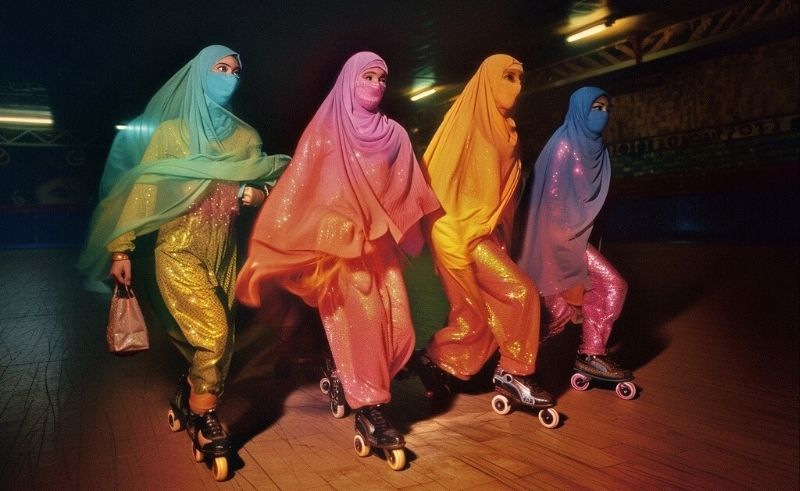 The impact resonates beyond the screen. Global brands take notice, but more profound are the messages from strangers: One surprising reaction underscored art's power: "Someone once said one of my AI pieces reminded them of a real memory they had - down to the details. It reminded me that art isn’t always about invention - it’s about recognition. We create fiction, but people find their truth in it." Professionally, Sard is charting new territory. Personally, it has deepened his connection to his roots.
The impact resonates beyond the screen. Global brands take notice, but more profound are the messages from strangers: One surprising reaction underscored art's power: "Someone once said one of my AI pieces reminded them of a real memory they had - down to the details. It reminded me that art isn’t always about invention - it’s about recognition. We create fiction, but people find their truth in it." Professionally, Sard is charting new territory. Personally, it has deepened his connection to his roots.
Challenges remain, primarily technical - AI still grapples with nuanced, consistent expressions across wide group shots. Yet, Muji is optimistic it’s a hurdle soon to be cleared. For young artists wary of losing their voice to AI, his advice is anchored in authenticity: "Don’t chase style- chase story. Use AI as an amplifier, not a mask. Your voice comes from your questions, your struggles, your roots- not your tool. Own your perspective, and the rest will follow."
- Previous Article At Mamina’s La Ferrari Meets Koshari in a Dinner of Inheritances
- Next Article Styled Archives: Arab Stars Crowned by Headbands
Trending This Week
-
Dec 04, 2025







